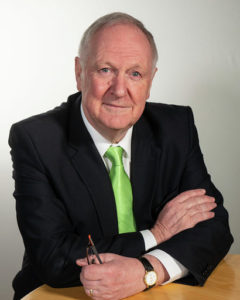Quick search
CTRL+K
Quick search
CTRL+K


Since 2010, the Global Law Experts annual awards have been celebrating excellence, innovation and performance across the legal communities from around the world.
posted 10 months ago
A six-month-old child was having reflux of stomach contents and was prescribed a particular drug, omeprazole, to block acid production and therefore stop some of the effects of regurgitation.
Unfortunately, the GP wrote the wrong dose on the prescription and it was dispensed, as written, by the pharmacist.
The drug was administered in liquid form for three days before the mistake came to light when the parents read the drug information contained in the box along with the bottle. The correct dose was then prescribed by the GP and again dispensed by the pharmacist.
The parents took an action against both the general practitioner and the pharmacist for the mistake, claiming that although the baby showed no outward sign of any difficulty, the fact that this high dose had been given to it, and also that there was alcohol within the liquid suspension, meant they could not be sure this would not have an effect on the baby in later life.
They wanted compensation “in case” it came to light at a later stage that the high dose of the drug and the alcohol would have potential for a side effect, which had not as yet been recognised in medical literature.
In this case, the suit failed, citing knowledge at a “point in time”, i.e. the present. However, it was also stated that if something did come to light in the teenage years, the child could take a case of its own up to three years after the age of maturity.
A specific point of interest in this case is that the pharmacist, who dispensed the drug as per the prescription given by the general practitioner, was found to have breached his duty of care in not realising the GP had made a mistake.
MDU figures for 2020 show that fewer than one in six actions in medical negligence actually succeed, with the vast majority failing on the grounds of causation. It must be remembered that subsequence is not the same as consequence.
Initial screening is therefore essential to manage client expectations at an early stage. This avoids unnecessary effort and costs for all concerned. Too many cases are taken to court with no chance of success. This is stressful for both the client and their legal advisor, and indeed for the medical personnel involved.
For fast and effective screening of all potential medical negligence cases, contact Peyton Medico Legal Services now on +44 (0)28 87724177 or email [email protected]
Author


There are no results matching your search.
Resetposted 9 hours ago
posted 9 hours ago
posted 1 day ago
posted 1 day ago
posted 4 days ago
posted 4 days ago
posted 4 days ago
posted 4 days ago
There are no results matching your search.
ResetFind the right Legal Expert for your business
Sign up for the latest legal briefings and news within Global Law Experts’ community, as well as a whole host of features, editorial and conference updates direct to your email inbox.
Naturally you can unsubscribe at any time.
Global Law Experts is dedicated to providing exceptional legal services to clients around the world. With a vast network of highly skilled and experienced lawyers, we are committed to delivering innovative and tailored solutions to meet the diverse needs of our clients in various jurisdictions.